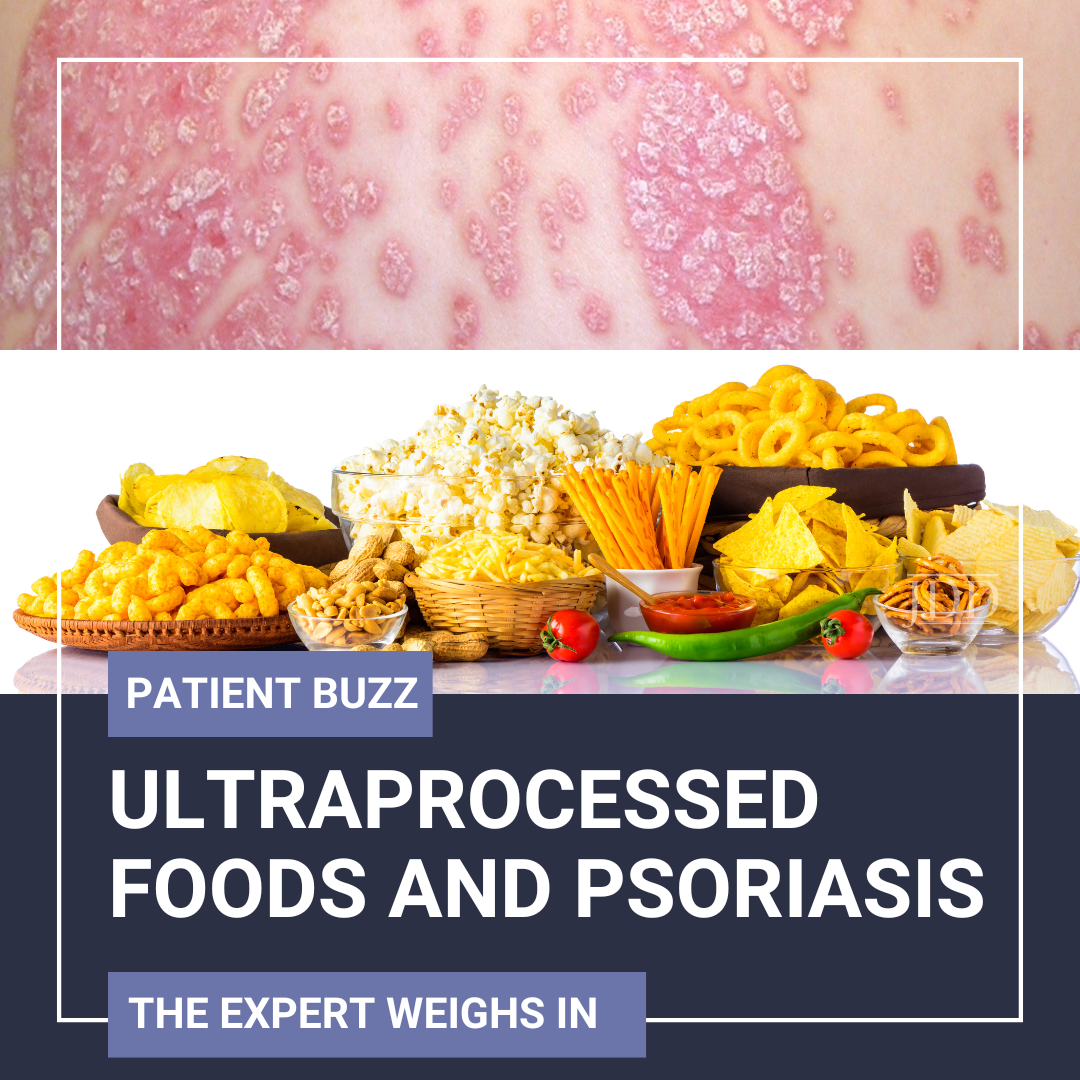HealthDay recently wrote an article, which was picked up by several news outlets, about a recent study on the association of ultraprocessed foods and psoriasis. Researchers found an association between high intake of ultraprocessed foods and active status of psoriasis. What is the overall link between diet and psoriasis? What mechanisms in psoriasis are impacted by dietary factors?
For an expert’s perspective, I reached out to Olabola Awosika, MD, MS, FAAD. a dermatologist in Fort Gratiot and Clinton Township, Mich.
In this study, researchers found people with active psoriasis were 36% more likely to place within the highest third of daily ultraprocessed food intake compared to people who had never had psoriasis. Do these results surprise you?
These results do not surprise me as we know that psoriasis is a chronic inflammatory condition driven by, not only genetic and immunological factors, but also by environmental factors such as diet. It is also well known that psoriasis is associated with metabolic syndrome, which has been linked to western diets composed of highly processed foods.
Do you think ultraprocessed foods are a trigger for psoriasis? If so, why?
Yes, but I think we need to be careful in interpreting this data and understand it doesn’t necessarily mean ultraprocessed foods are the cause of psoriasis. But rather, it triggers active psoriasis in those who are genetically predisposed to developing psoriasis. Known triggers for psoriasis typically include environmental factors, such as stress, medications, alcohol and obesity. Ultraprocessed foods are likely related to the association of obesity with psoriasis and explain why those who adapt lifestyle changes to lose weight often have improvement of their psoriasis.
What is the overall link between diet and psoriasis? What mechanisms in the disease are impacted by dietary factors?
Epidemiologic studies have shown that psoriasis patients consume more simple carbohydrates and saturated fats (SFAs) and less protein, complex carbohydrates, unsaturated fats, vegetables and fiber compared to healthy controls. Investigative studies in mice and human studies have demonstrated that SFAs, simple sugars, alcohol and red meat exacerbate psoriasis and its comorbidities by creating a more pro-inflammatory state, leading to the activation of the TNF-alpha/IL-23/IL-17 axis, generating reactive oxygen species, gut dysbiosis and/or suppression of regulatory T cells. Contrarily, polyunsaturated fats (PUFAs), vitamin D, fiber based foods and probiotics suppress inflammatory signaling and induct regulatory T cells.
Psoriasis already has a known association with obesity. What is important for dermatology clinicians to share with their psoriasis patients about the risk factors of the disease including lifestyle factors?
Clinicians should inform patients that psoriasis has several risk factors that are within patients’ ability to control, such as obesity, stress and alcohol consumption. Though we know modifying these factors is easier said than done, when these factors are reduced or even eliminated patient outcomes are significantly improved in terms of severity and frequency of disease flares.
What else is important for dermatology clinicians to know about diet and psoriasis?
Clinicians should know that lifestyle modifications, including improvement of diet and exercise, can lessen flares and severity of psoriasis in their patients. In addition to reduction of alcohol intake, clinicians should recommend their patients consume appropriate proportions of PUFAs (such as more omega-3 fatty acids compared to omega-6 fatty acids), monounsaturated fats (such as virgin olive oil), carbohydrates with low glycemic index (such as whole wheat cereal, selected fruits and unprocessed vegetables), high antioxidant foods (such as green vegetables, berries and carrots), and adequate vitamin D supplementation. Alternative diets, such as the Mediterranean diet and low energy diet, have demonstrated improvement in obese psoriasis patients. Gluten-free diets may also show improvement in some patients despite history of celiac disease or gluten sensitivity.
Did you enjoy this Patient Buzz Expert Commentary? You can find more here.

